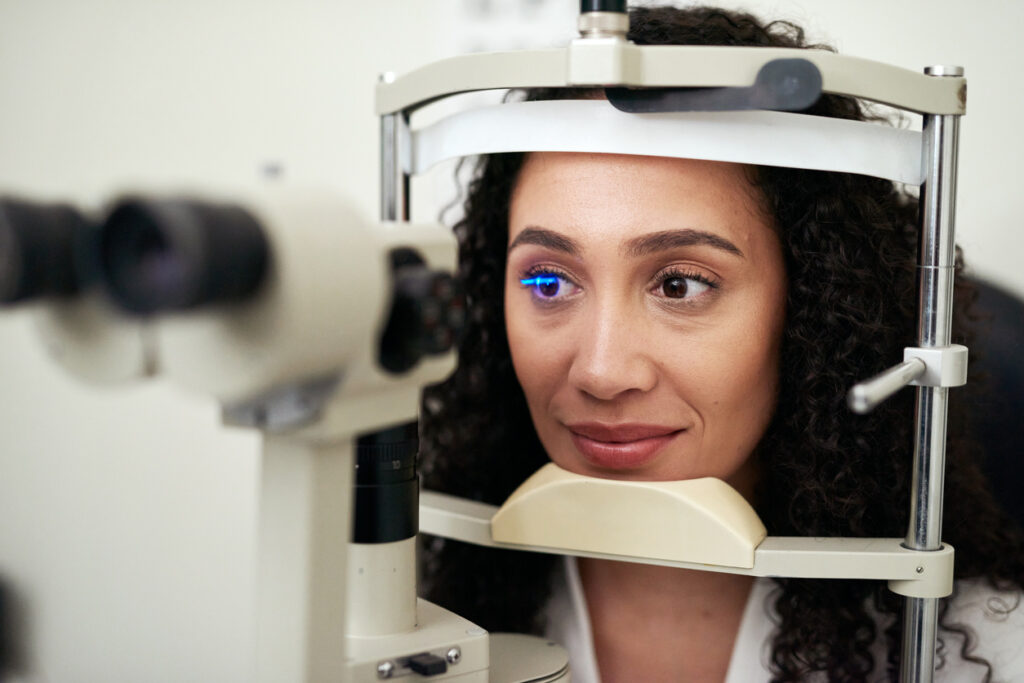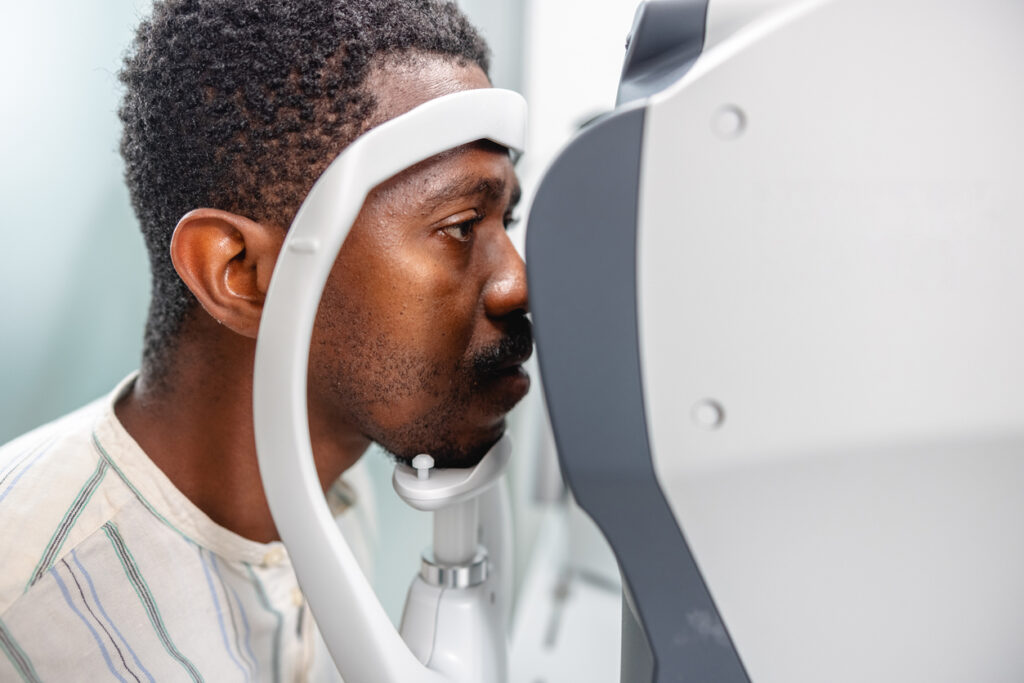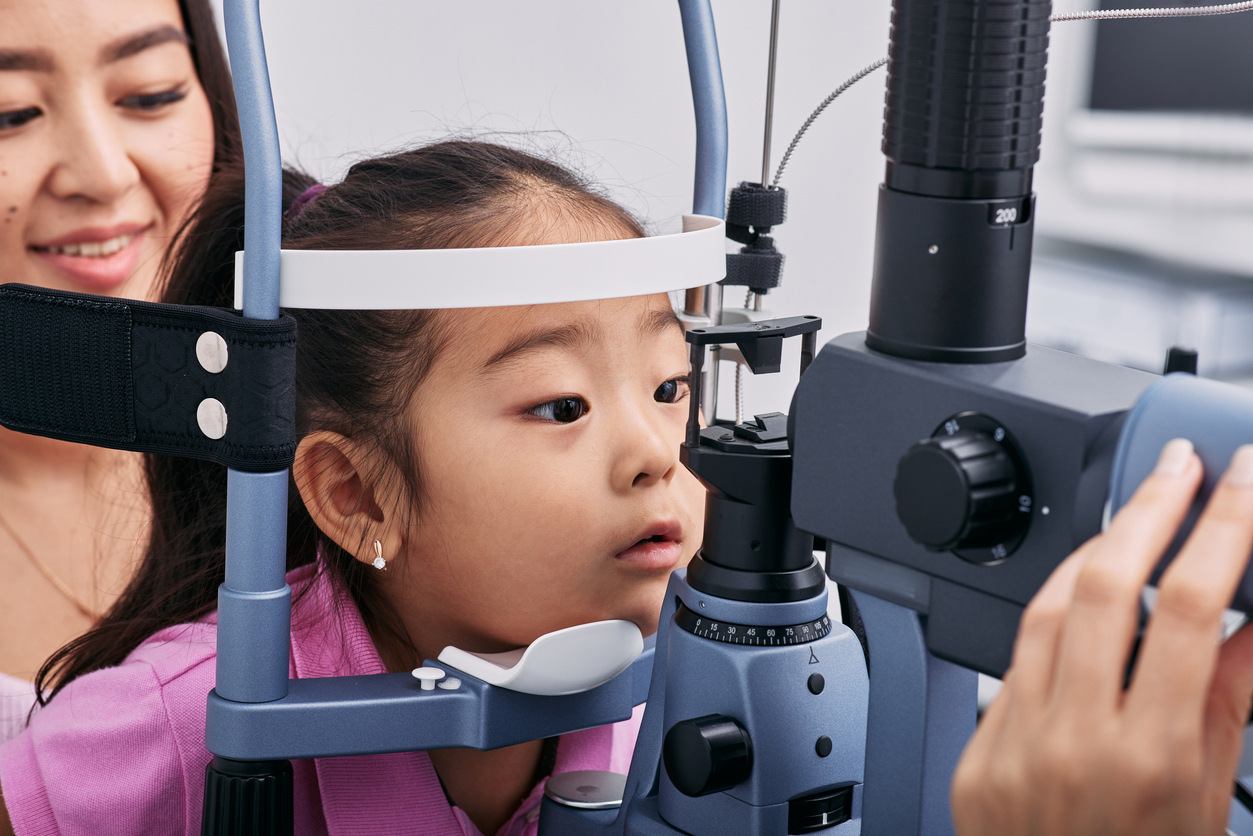You use your eyes on a daily basis for every aspect of your life. They…
Major Health Problems a Comprehensive Eye Exam Can Catch

When you consider the health benefits of comprehensive annual eye exams, you might simply think of correcting vision issues. However, these exams are crucial for much more. They serve as a foundational element in detecting various health problems.
Did you know that a thorough assessment of your eyes can reveal signs of conditions that may have remained unnoticed otherwise? From the comfort of your optometrist’s chair, you could be taking a massive step in proactively managing your health. Eye exams not only evaluate the quality of your sight but also check for a multitude of potential health problems detected by eye exams, giving you valuable insights into your overall well-being.
Understanding the Comprehensive Eye Exam Process
A comprehensive eye exam involves a series of tests conducted by an eye care professional. These tests range from simple ones, like having you read an eye chart, to complex tasks, such as using a high-powered lens to view the tiny structures inside your eyes. The exam includes a number of procedures, such as:
- Evaluate your visual acuity to determine if you need corrective lenses.
- Testing your eyes’ alignment to uncover any issues that could cause eye strain or amblyopia.
- Examining your pupils for their response to light can uncover neurological issues.
- Checking the pressure in your eyes aids in the detection of glaucoma.
- Inspecting the front and back parts of the eye for conditions like cataracts or retinal disease.
- Dilating your pupils to get a more comprehensive view of the internal structures of your eyes allows for early detection of potential health concerns.
All these procedures are crucial as they give insight into your eye health and can also hint at other health anomalies that might require medical attention.
How Often Should You Have an Eye Exam?
Medical experts suggest that annual eye exams are a good practice for most people, particularly as they grow older. However, how frequently you should have one might vary based on several factors, including:
- Your age: Children, seniors, and all ages in between have different needs when it comes to eye care.
- Your health history: Those with diabetes, hypertension, or a family history of ocular disease may need more frequent monitoring.
- Your vision status: Individuals already diagnosed with vision issues might require close follow-ups.
In general, adults should aim for a comprehensive eye exam every one to two years. Remember, these exams are more than about vision – they’re an essential part of your health maintenance, helping to detect serious health conditions that may have no other obvious symptoms.
Uncovering Hidden Cardiovascular Conditions

Comprehensive eye exams serve as a critical frontier in detecting covert health issues, with particular efficacy in unveiling cardiovascular conditions that often lurk unnoticed.
Signs of Hypertension Detected During Eye Exams
During a comprehensive eye exam, optometrists carefully inspect the condition of the blood vessels in the retina, which can exhibit telltale signs of hypertension. Risk factors include narrowing of the vessels, changes in the vessel wall, and spots on the retina known as hemorrhages or cotton wool spots.
These retinal anomalies could be among the first indicators of high blood pressure, prompting timely medical intervention.
How Retinal Vessels Reveal Your Heart Health
The state of the retinal vessels provides a window into the health of your cardiovascular system. Comprehensive eye exams can reveal changes in the caliber and reflectivity of the retinal vessels, which correlate with an increased risk of hypertension and subsequent heart conditions. Addressing these signs can help in managing heart health proactively averting potential cardiovascular events.
- Detection of retinal vein occlusion indicative of blood flow issues
- Presence of microaneurysms signaling early vascular complications
- Identification of arteriolar emboli, which may point to embolic disease
Health problems detected by eye exams underscore the importance of incorporating regular, comprehensive eye checks into your healthcare regime. By doing so, you can gain invaluable insights into your cardiovascular condition and take preemptive steps to safeguard your heart’s health.
Identifying Signs of Diabetes Through Your Eyes
When you consider the early indicators of diabetes, your eyes provide crucial evidence that should not be overlooked. An annual eye exam can serve as a comprehensive health assessment, alerting you to the onset of diabetes, a condition known for its stealthy approach and widespread impact on the body.
Notably, the retina becomes a focal point during these exams—optometrists meticulously search for signs of diabetic retinopathy, a condition characterized by damage to the retinal blood vessels as a direct consequence of elevated blood sugar levels.
- During an eye exam, particular attention is given to the blood vessels in your eyes. Any swelling, leaks, or abnormal growth patterns may suggest health problems detected by eye exams, including diabetes.
- The presence and severity of diabetic retinopathy offer critical insights into disease management, guiding both ophthalmologists and primary care physicians in tailoring your treatment plan.
- Timely detection of subtle changes can lead to better diabetic control, potentially staving off the progression of retinopathy and preserving vision.
- An optometrist might also assess the pressure inside your eyes which, if elevated, could signal glaucoma — another condition associated with diabetes.
Considering these health problems detected by eye exams, it’s evident that a trip to the optometrist can provide more than just an updated glasses prescription; it’s a proactive measure in safeguarding your overall well-being. Remember, your eyes are not only windows to your soul but also to your health, potentially revealing hidden health problems before other symptoms emerge.
Eye Exams and the Detection of Neurological Diseases
Eye exam health benefits extend far beyond vision correction—these evaluations are crucial in the preemptive identification of serious conditions that could impact overall brain health.
The Link Between Vision and Brain Health
Your eyes act as a direct pathway to the brain, offering clues that can alert health professionals to the presence of neurological issues. Signs of inflammation, abnormal eye movements, or issues with visual processing can all signal potential neurological challenges that merit further investigation.
Spotting Early Symptoms of Multiple Sclerosis and Parkinson’s
Multiple Sclerosis (MS): Symptoms such as optic neuritis—an inflammation that damages the optic nerve—can be a precursor to MS. Comprehensive eye exams can detect optic neuritis and other eye-related symptoms of MS long before other symptoms present themselves.
Parkinson’s Disease: Parkinson’s can cause visual disturbances, including difficulty in blinking and focusing, which could be detected during an eye exam. These visual anomalies, paired with other symptoms, can indicate the need for neurological assessment.
The benefits of regular eye exams reach well beyond vision correction, playing a significant role in monitoring your neurological health. Actively engaging with eye exam health benefits by seeking comprehensive eye exams can provide invaluable insights into the overall wellness of one of your body’s most complex systems—the nervous system.
Catching Autoimmune Disorders with an Eye Check
It may come as a surprise, but your routine eye exam can unlock clues about your immune system’s health, revealing conditions that might otherwise go unnoticed. These health problems detected by eye exams can range from rheumatoid arthritis to lupus, and each sign within the eye is a window into your systemic well-being.
Scleritis: A Window to Your Immune System’s Health
When you think about eye exams, do you consider the health of your immune system? Scleritis, a condition characterized by the inflammation of the sclera, the white outer coating of the eye, can be an alert. Its association with systemic autoimmune diseases means that detecting scleritis during an eye exam could be your first step in identifying disorders such as rheumatoid arthritis or lupus. This information can prompt timely treatment and manage symptoms more effectively.
The Connection Between Dry Eyes and Autoimmune Diseases
Frequently dismissed as a mere inconvenience, dry eyes might be signaling something more significant than just an annoyance. During a comprehensive eye exam, persistent dry eye symptoms could indicate Sjögren’s syndrome, a chronic autoimmune disorder.
This is just one example of how eye exam health benefits include screening for conditions that affect more than just your vision. Detecting such health problems through eye exams can lead to earlier interventions and better management.
- Be alert to symptoms like excessive dryness or eye redness, and report these to your eye doctor.
- Timing is critical; don’t wait until symptoms become severe to schedule an eye exam.
- Share your complete health history with your optometrist, as it can be crucial in connecting eye symptoms to larger health issues.
Detecting Cancers That Affect Vision and Eye Health
Cancers within the eye, such as melanoma, often present subtle signs that can be unnoticed without professional evaluation. During an eye exam, the optometrist examines the back of the eye for unusual pigmentation or lesions, which can be early indicators of melanoma. The detection of these abnormalities allows for timely referral to oncologists and can significantly affect treatment outcomes.
Comprehensive eye exams can reveal signs of cancers in other parts of the body. For instance, the presence of certain patterns in the blood vessels or unusual swelling within the eye can signal the need for further investigation into potential systemic malignancies. These are among the health problems detected by eye exams that underscore the importance of regular eye check-ups.
- Detection of ocular melanoma through careful examination of pigmentation and lesions
- Inspection of retinal blood vessels for patterns indicative of systemic cancers
- Harnessing advanced imaging techniques to identify masses or tumors that could be obscured
Eye exams serve as a non-invasive yet powerful means of monitoring your overall health, and they should be an integral part of your healthcare routine. The ability to detect a range of conditions, including various cancers, highlights the comprehensive nature of these examinations and their potential to contribute to life-saving interventions.
Exposing Silent Thieves of Sight – Glaucoma and Macular Degeneration
When it comes to your vision, certain conditions operate incognito, slowly compromising your sight without any obvious signs. Two prime examples of these conditions are glaucoma and macular degeneration. But with vigilant monitoring through comprehensive eye exams, you can detect and manage these threats.
Understanding Glaucoma Through Intraocular Pressure
Glaucoma is often associated with increased intraocular pressure, a key indicator that can be measured during your annual eye exams. By mapping out the pressure patterns over time, optometrists can spot subtle changes that may indicate the onset of glaucoma, often before you’ve noticed any vision loss. Early detection through these comprehensive exams can lead to treatments that significantly slow the disease’s progression.
Age-Related Macular Degeneration: The Myth of Inevitability
Many believe that macular degeneration is an unavoidable part of aging, but this isn’t necessarily true. While your risk increases as you age, regular check-ups and comprehensive eye exams can unveil the early stages of macular degeneration. Armed with this knowledge, you and your optometrist can work together to implement lifestyle changes and treatments that can help protect your vision for years to come.
- Timely diagnosis of glaucoma can spare you from its advanced effects.
- Annual eye exams are crucial for tracking changes in your eye health, particularly for age-related conditions.
- Early intervention is key to managing macular degeneration effectively.
In conclusion, comprehensive eye exams serve as a crucial defensive strategy against the silent thieves of sight. By committing to regular screenings, you are taking a proactive step towards preserving your precious sense of sight.
Comprehensive Eye Care Solutions at Andover & Winfield Family Optometry
In the course of this article, we’ve illuminated the breadth of benefits that comprehensive eye exams offer beyond mere vision correction. By incorporating these exams annually into your healthcare regimen, you not only safeguard your vision but unlock a vital avenue for the early detection of numerous health issues.
At Andover & Winfield Family Optometry, we understand the importance of your vision, and we remain committed to ensuring your eye health is in the best hands. Our team of experienced optometrists and state-of-the-art facilities are dedicated to providing comprehensive eye exams and personalized eye care solutions.
Contact Andover & Winfield Family Optometry today to schedule your next eye exam and join our community of satisfied patients who trust us with their vision.



